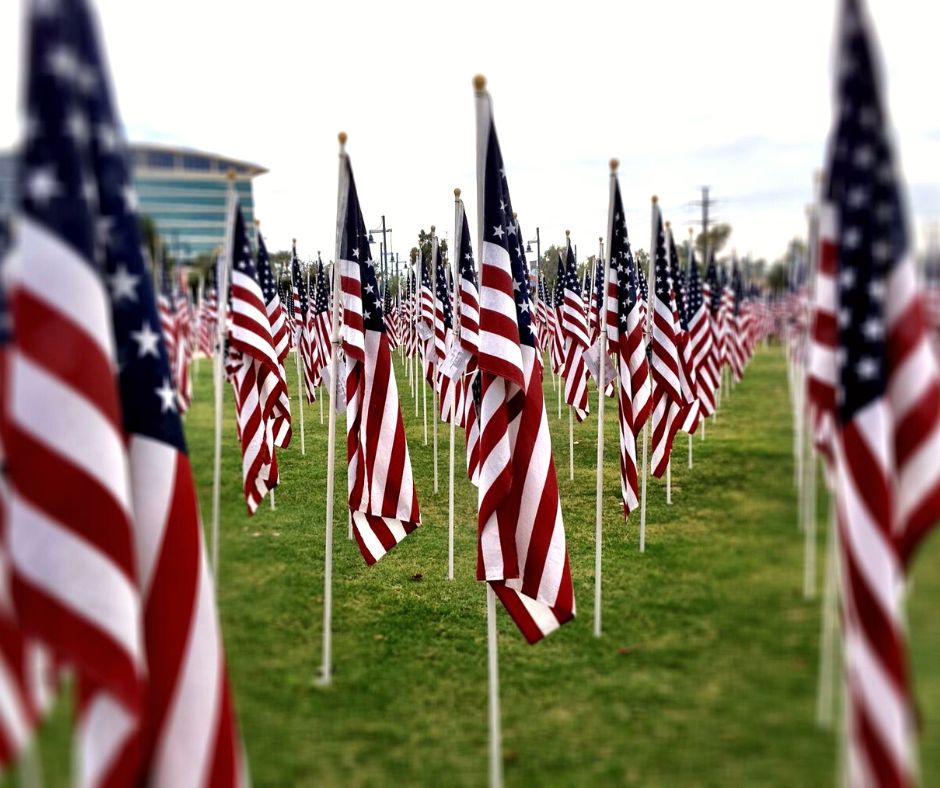
The events that took place on Tuesday, September 11, 2001, also known as 9/11, were some of the most shocking and heinous incidents that happened in the United States. These happenings have been referred to as the largest attack by any foreign entity on U.S. soil. On what seemed to be any other typical morning, nearly 3,000 individuals were killed when two hijacked airplanes crashed into the World Trade Center towers in New York City, while another plane plowed into the Pentagon and a fourth aircraft was brought down in a crash on a Pennsylvania field by heroic passengers who fought back against terrorists. For an account of these heroic passengers’ last moments, checkout Among the Heroes: United Flight 93 and the Passengers and Crew Who Fought Back by Jere Longman. The group(s) responsible for carrying out these horrific attacks were later identified as the Islamist extremist network known as al-Qaeda, which was led by Osama bin Laden and the Taliban (an Islamic fundamentalist party).
For those of us who are old enough to remember that day, it deeply affected our society as a country and our individual lives forever. The fear that ensued from these occurrences caused a vast expansion in military and law enforcement numbers, as well as intelligence powers (FBI, CIA, NSA, etc.) aimed at putting a halt to terrorism. These incidents changed a variety of protocols and procedures related to traveling (especially by airplane), immigration, homeland security, and American culture forever. The following is a condensed version of five significant ways that the 9/11 circumstances forever changed America.
The Beginning of the War on Terrorism
- Then President George W. Bush addressed Congress and the nation on September 20, 2001, he made a case for a new kind of military response. Rather than a typical targeted air strike, he presented the idea of a wide-ranging global war against terrorism. When American troops invaded Afghanistan less than a month after 9/11, they were launching what became the longest sustained military campaign in U.S. history. The fight in Afghanistan had support from the American people and the backing of The North Atlantic Treaty Organization (NATO) allies to dismantle al Qaeda and the Taliban which would include the assassination of Osama bin Laden.
- American support for the War on Terror became mixed as the campaign continued for several years in an effort to target multiple terrorist regimes across the world. Unfortunately, thousands of American troops were killed in the first two decades of the War on Terror and many more returned home with physical and psychological wounds. The ever-present shadow of 9/11 kept U.S. troops on the ground in Afghanistan and elsewhere for nearly 20 years. Although it took many years, it was not until May 2, 2011 that Osama Bin Laden was taken out. For more information on what had to transpire to follow through with the Bin Laden mission, checkout Countdown Bin Laden: the untold story of the 247-day hunt to bring the mastermind of 9/11 to justice by Chris Wallace.
Anti-Muslim Violence Grew
- Politicians and law enforcement repeatedly stated that Islam was a peaceful religion whose true teachings had been twisted by terrorist extremists. Many people in America and around the world still equated the 9/11 invasion with Islam and sought vengeance on anyone that even looked Muslim.
- A gunman in Mesa, Arizona went on a shooting rampage just four days after 9/11. He shot and killed a gas station owner of Indian descent. He wore a turban, so the gunman assumed he was Muslim. He also shot at another gas station clerk of Lebanese descent and shot through the windows of an Afghan-American family. Thankfully, those individuals made it through the ordeal alive.
- In the year 2000, there were twelve anti-Muslim assaults reported to the FBI. In 2001, that number increased to ninety-three. As civil liberties organizations criticized the Transportation Security Administration (TSA) and law enforcement for the racial profiling of Arab and Muslim men, hate crimes against Muslims persisted. Statistics from the FBI showed there were ninety-one reported aggravated or simple assaults motivated by anti-Muslim bias in 2015 and in 2016, that figure surpassed 2001 numbers, reaching one hundred twenty-seven. For more stories on anti-muslim treatment, checkout Terrified: How Anti-Muslim Fringe Organizations Became Mainstream by Christopher Bail.
Air Travel was Transformed
- One of the most disturbing aspects of 9/11 was that the al Qaeda hijackers were easily able to board commercial aircraft with weapons as well as force their way into the cockpit. These happenings were a failure of America’s intelligence network to identify them and a miss on airport safeguards to stop them.
- Even though there had already been a handful of high-profile hijackings and bombings of commercial planes, such as the 1988 bombing of Pan Am Flight 103 over Lockerbie, Scotland, security was not as high of a priority for airlines before 9/11. Airports had security departments, employees wore badges, and they did screenings, but not anywhere near the level it is at today.
- Before 9/11, people did not have to have a ticket to wander around the airport or wait at the gate. No one checked passengers’ IDs before boarding the plane. And the only item people had to remove when passing through security was the loose change from their pockets. Many airports did not perform background checks on their employees, and checked baggage was rarely scanned.
- All of that changed dramatically with the creation of the Transportation Security Administration, a new federal agency authorized by Congress in November of 2001. Within one year, TSA basically had an army of aviation employees, sitting at well over 50,000 individuals. These officers were also trained in behavior detection techniques to recognize a list of actions considered suspicious—gripping baggage tightly, appearing confused and disoriented, signs of a recently shaved beard—that would flag a traveler for additional screening.
- The FBI’s new Terrorist Screening Center compiled a Terrorist Watch List of hundreds of thousands of individuals, around 6,000 of whom were placed on a “No Fly” list, including 500 Americans.
- Travelers also had to undergo extensive protocols including that tickets and photo IDs became required to get through the screening area, electronics had to be removed from carry-on bags, shoes had to be taken off, and liquids were restricted to three-ounce clear containers. Conventional X-ray machines were eventually replaced with full-body scanners.
Surveillance Increased
- The Patriot Act was passed six weeks after 9/11. Lawmakers worked tirelessly to improve and alleviate the blunders that allowed terrorists to enter the United States. The Patriot Act authorized wide-ranging changes in how domestic intelligence agencies like the FBI conducted surveillance. Well-established rules meant to protect Americans from unreasonable search and seizure were thrown by the waist side in the name of national security.
- 9/11 created a fear that there were more occurrences to come and that additional terrorist groups were active in American cities. In order to identify these individuals and help calm American minds, Congress gave the FBI and NSA new abilities to collect and share data. For example, the Patriot Act gave intelligence agencies the power to search an individual’s library records and internet search history with little judicial oversight. Agents could search a home without notifying the owner or wiretap a phone line regardless of probable cause.
- These new abilities caused civil liberties groups to fight back against what they saw as unconstitutional breaches of privacy under the Patriot Act. However, another controversial law was passed in 2008, called the FISA Amendments Act. Under the premise of targeting foreign nationals suspected of terrorism, this law gave the NSA nearly ungoverned authorities to eavesdrop on American phone calls, text messages, and emails.
America was Forever Altered
- In the years since 9/11, Americans have killed 107 people in acts of terrorist aggression. Half of those deaths occurred in one instance at an Orlando nightclub. Fortunately, there has been no large-scale terrorist violence on U.S. cities like 9/11 since that day. The security measures put in place after 9/11 have seemingly discouraged schemes by foreign agents on American soil. However, our country has faced an ongoing and evolving war against terror that has affected us forever. We will never be the same.
- Despite these unimaginable acts, the U.S. has tried its best to heal and restore our peace and harmony. There has been homage paid to those that paid the ultimate sacrifice with their lives and praise to those who made paramount efforts to assist those who were injured. There have been many ceremonies conducted, several museums and monuments erected in honor of all who gave, and iconic symbols of U.S. history have been beautifully recreated.
If you would like to learn more about the 9/11 circumstances, survivor accounts, and the world after these attacks, The Salina Public Library has you covered. Search our catalog for The only plane in the sky: an oral history of 9/11 by Garrett Graff, A decade of hope: stories of grief and endurance from 9/11 families and friends by Dennis Smith, Until the Fires Stopped Burning: 9/11 And New York City In The Words And Experiences Of Survivors And Witnesses by Charles B. Strozier, or 9/11/2001: Then and Now by Jessica Rusick.

About The Author: Allyson
Allyson is the Head of Circulation at Salina Public Library. She grew up in Salina and graduated from Salina Central. After high school, she spent several years living on the East Coast before returning to Salina in 2011. Allyson believes in lifelong learning and as a former instructor, she conveyed to her students the importance of reading and reading comprehension in order to always be increasing one's knowledge base. Allyson's reading preferences include recipe/cook books, self-awareness and self-improvement books, and books, blogs, articles, and etc., that help her to stay up on current events. She earned a BA in Applied Behavioral Science from Ashford University and an MEd in Education from Concordia-Portland University. When not working at the library, Allyson enjoys exploring and perfecting new recipes, walking her two fur babies, binging on the latest Netflix find, and spending time with family & friends. Allyson can be reached at circ@salinapublic.org.
More posts by Allyson